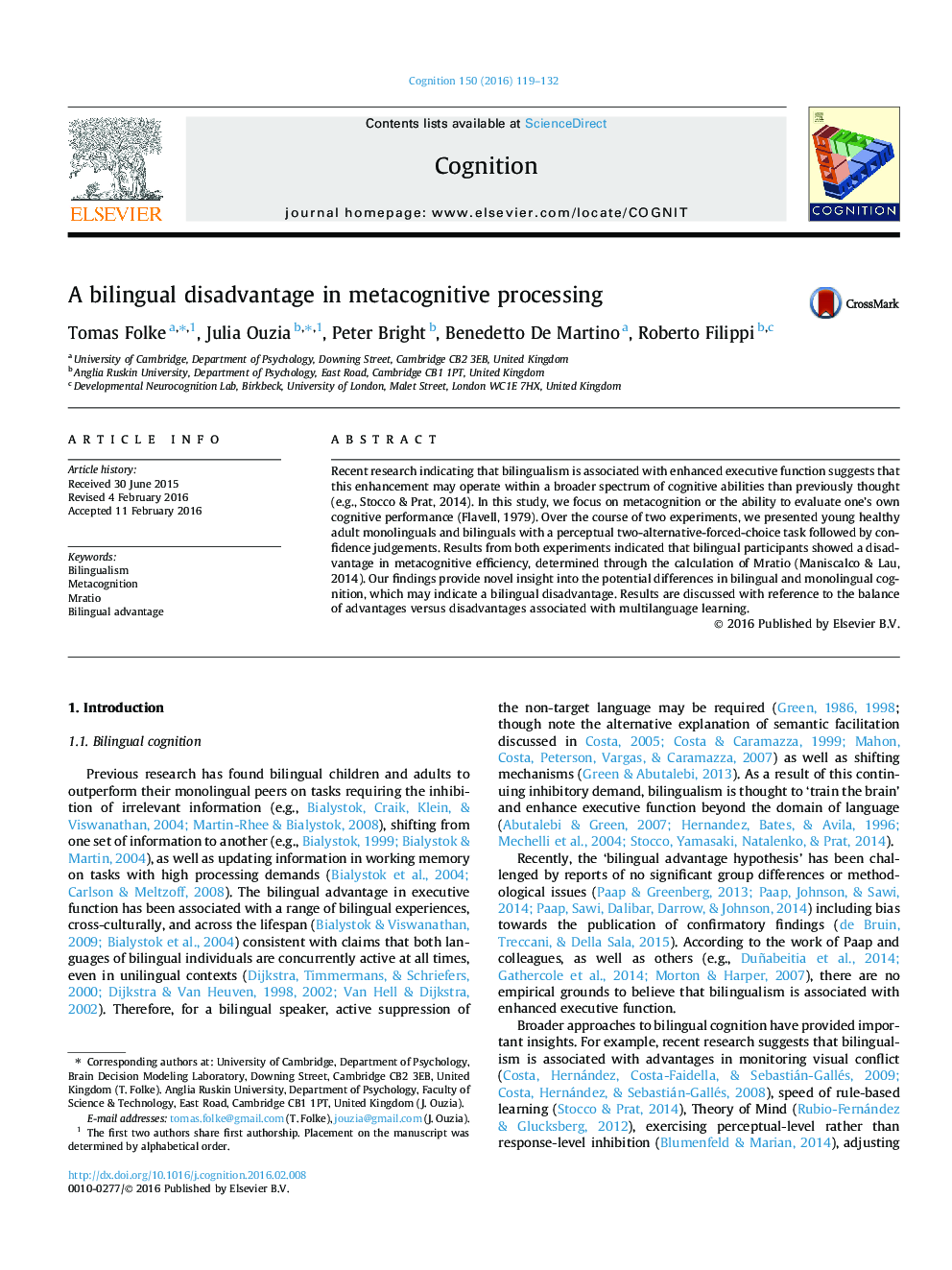| Article ID | Journal | Published Year | Pages | File Type |
|---|---|---|---|---|
| 7286230 | Cognition | 2016 | 14 Pages |
Abstract
Recent research indicating that bilingualism is associated with enhanced executive function suggests that this enhancement may operate within a broader spectrum of cognitive abilities than previously thought (e.g., Stocco & Prat, 2014). In this study, we focus on metacognition or the ability to evaluate one's own cognitive performance (Flavell, 1979). Over the course of two experiments, we presented young healthy adult monolinguals and bilinguals with a perceptual two-alternative-forced-choice task followed by confidence judgements. Results from both experiments indicated that bilingual participants showed a disadvantage in metacognitive efficiency, determined through the calculation of Mratio (Maniscalco & Lau, 2014). Our findings provide novel insight into the potential differences in bilingual and monolingual cognition, which may indicate a bilingual disadvantage. Results are discussed with reference to the balance of advantages versus disadvantages associated with multilanguage learning.
Related Topics
Life Sciences
Neuroscience
Cognitive Neuroscience
Authors
Tomas Folke, Julia Ouzia, Peter Bright, Benedetto De Martino, Roberto Filippi,
